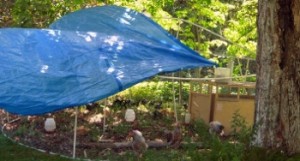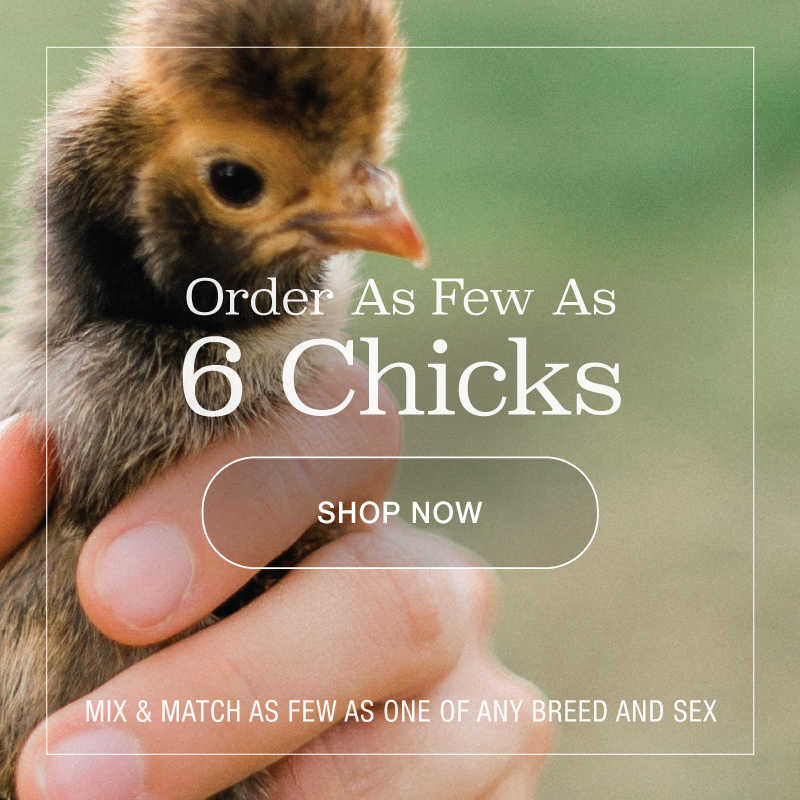 Barbara Chatterton-Luuring and her family are starting a homestead in Machias, Maine. They moved there from the Netherlands about a year ago and began raising chickens for the first time this Spring. They are starting a homestead on three acres with a flock of 45 chickens and three guinea fowl.
Barbara Chatterton-Luuring and her family are starting a homestead in Machias, Maine. They moved there from the Netherlands about a year ago and began raising chickens for the first time this Spring. They are starting a homestead on three acres with a flock of 45 chickens and three guinea fowl.
Barbara has had a long-standing desire to start a homestead and raise livestock. She and her husband have four children, and they feel it is important to raise livestock and live on a homestead because of the skills and positive character traits that it teaches and imparts to their children. Besides that, they also feel that raising their own food is a way that they can become more responsible for what they put into their bodies.
 When Barbara and her family first began raising chickens, they purchased seven Blue Laced Red Wyandottes. Their home is near a saltwater estuary, which acts as a habitat for eagles, and they soon lost much of their small flock to eagles. Other predators that are a problem in their area are raccoons and foxes.
When Barbara and her family first began raising chickens, they purchased seven Blue Laced Red Wyandottes. Their home is near a saltwater estuary, which acts as a habitat for eagles, and they soon lost much of their small flock to eagles. Other predators that are a problem in their area are raccoons and foxes.
 Not to be deterred, Barbara and her husband improved their chicken housing. They converted a tool shed into a very secure chicken coop and built a chicken tractor. The chicken tractor gave them a place to put the chickens during the day, where the chickens would have access to free range but still be protected. They replenished their flock by purchasing Buff Orpingtons and Black Australorps from Murray McMurray Hatchery along with Barred Rocks from another source. During the day, they move some of the chickens in the chicken tractor so they can range, then at night, Barbara transfers them back into the chicken house for additional security.
Not to be deterred, Barbara and her husband improved their chicken housing. They converted a tool shed into a very secure chicken coop and built a chicken tractor. The chicken tractor gave them a place to put the chickens during the day, where the chickens would have access to free range but still be protected. They replenished their flock by purchasing Buff Orpingtons and Black Australorps from Murray McMurray Hatchery along with Barred Rocks from another source. During the day, they move some of the chickens in the chicken tractor so they can range, then at night, Barbara transfers them back into the chicken house for additional security.
Barbara’s children really love raising chickens and in her words, the children “are a humongous help with the chickens”. The chickens really seem to enjoy the children also.
Barbara is thrilled to be starting a homestead, and looks forward to adding more livestock to build up her family’s homestead in the future. She plans to start raising a special, small variety of White Turkeys that are well suited to Maine’s cold winters, and she wants to begin raising rabbits and dairy goats.



I raised Dairy Goats for almost 10 years. We used the milk for the family and for our other animals, dogs, cats, pig, chickens, and calf. The milk is healthy for you, much better than cows milk. You can make soap and lotions from the milk, too. Kids can be sold each spring for meat. My circumstances changed, and I had to stop milking goats, so now I just have chickens. The disadvantage with milk goats is that they need to be milked 2X a day. If you go somewhere you need to arrange for someone else to milk your goats. I loved my goats and they were fun to show at the 4H Fairs, giving my children lots to do and lots to learn. I think you would enjoy raising Dairy Goats. I would suggest that you hook up with a County Extension Service or 4H Club to help you get started.
When setting hens go past their hatching date, you can “plant” at night baby chicks of you favorite breed.
I just order about ten chicks from McMurray Hatchery and plant them in my hens nest, and she is a happy camper. No need for heat lamps etc., and it is really a cool way and a natural way.
My flock is free range and the hen does all the work. Oh and by the way, they are very healthy and happy. Nothing better than watching those chicks following their mother around and watching those instincts take over.
I have a hen that hatches (3) batches of chicks during spring, summer and fall. Don’t know what breed she is, but I do know that she is very prolific.
Have Fun,
Bob
I need help, we have about 15 hens and 2 roosters. We have tried to hatch eggs twice. The first time we hatched 2 out of at least 40 eggs. The 2nd time none at all and we let the chickens sit well past 21 days, any advice would be most appreciated.
I have White Wynndottes that are pretty good at setting. I think for best results when using a brooding hen is that we set her first of all at night where she is isolated and her location is almost dark at all times and quiet.
While she is sitting, leave food and water around her at all times. The key is the almost dark and a place that is quiet and certainly safe.
Good Luck,
Bob
The best place to locate quality rabbit stock from is through American Rabbit Breeders Association. Most weekends there should be a rabbit show somewhere in your state where you can see the different breeds as well as meet and talk to the breeders. This is the best way to not only find quality stock, but to build a network of support for raising rabbits.
The type of turkey we’ll probably raise are the Beltsville Small Whites.
Barbara is a wonderfully talented lady! Did you know she is also a gifted needlework designer?